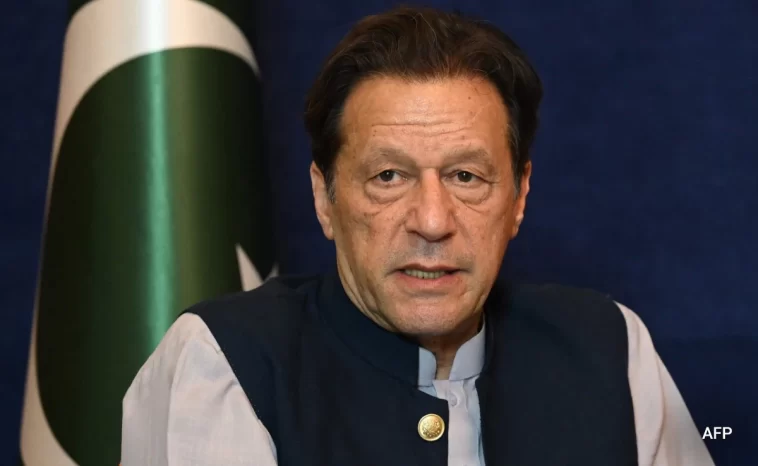With Imran Khan’s sentencing and detained in a corruption case on Saturday, Pakistan has maintained its reputation for imprisoning former prime ministers while avoiding taking action against military dictators who have repeatedly violated the Constitution.
Khan, the leader of the Pakistan Tehreek-e-Insaf (PTI) party, was detained from his residence in Lahore’s Zaman Park after an Islamabad-based sessions court sentenced him to three years in prison for concealing the proceeds from the sale of state gifts from the Toshakhana.

The Toshakhana is a Cabinet Division department that stores gifts provided to rulers and government officials by foreign dignitaries and heads of other governments. Khan purchased and resold several presents, including a valuable watch given to him by the Saudi crown prince.
The 70-year-old leader was authorised to purchase the gifts from Toshakhana and conduct the sale, but he neglected to inform the Election Commission of Pakistan about the money he made, a violation of the law for which he was charged with concealment.
Khan might have gotten away with a warning or a fine in better times, but he ran out of luck when he fell out with the potent military establishment, which led to his removal from office in April of last year.
Khan is not the first Pakistani prime minister to end up in prison; the country’s sordid history is replete with unenviable examples of the treatment of elected leaders.
Hussain Shaheed Suhrawardy, a Bengali politician from East Pakistan who served as the fifth prime minister, is first on the list. In January 1962, he was arrested and imprisoned on false allegations of “anti-state activities.” Actual transgression was his refusal to support military dictator General Ayub Khan.
In 1974, the ninth prime minister, Zulfikar Ali Bhutto, was arrested on allegations of conspiracy to murder a political opponent. He was given a death sentence and executed on April 4, 1979.
Benazir Bhutto served twice as prime minister, from 1988 to 1990 and 1993 to 1996. The country’s only female prime minister was detained multiple times, beginning in 1985 with a 90-day house arrest.
In August 1986, she was detained in Karachi for speaking out against the military dictator Ziaul Haq. In April 1999, she was sentenced to five years in prison, disqualified, and fined more than 5 million pounds for corruption. She evaded arrest by living in self-imposed exile.
Nawaz Sharif was detained in 1999, following the takeover by General Pervez Musharraf, and then exiled for a decade.
In July 2018, he and his daughter Maryam Nawaz were sentenced to 10 years in prison for corruption. In December of the same year, he was sentenced to seven years in prison for corruption at Al-Azizia Steel Mills. In 2019, he travelled to London for medical treatment and never returned.
Shahid Khaqan Abbasi was arrested in July 2019 in connection with a corruption case involving Liquefied Natural Gas (LNG), but was subsequently released on bail.
Imran Khan was also detained on May 9, 2023 in another corruption case, but was released a few days later after the Supreme Court intervened. In the Toshakhana case, he was sentenced to three years in prison on August 5, 2023.
Hamid Mir, a renowned journalist and anchor for Geo News, stated, in response to his conviction and detention, that he was not the first prime minister to be imprisoned and may not be the last.
“First Hussain Shaheed Suhrawardy, then Zulfikar Ali Bhutto, then Benazir Bhutto, then Nawaz Sharif, and most recently Imran Khan. Politicians and prime ministers are always punished, he tweeted.
In addition, he stated that no Pakistani prime minister has ever completed a full five-year term.
In distinct contrast, none of the four military dictators — Auyb Khan, Yahya Khan, Ziaul Haq, and Pervez Musharraf — were brought to justice for overthrowing democratically elected governments and subverting the Constitution.
Also read this:Earthquake tremors felt in Delhi-NCR
In matters of security, foreign policy, and politics, the powerful Pakistan Army, which has governed the coup-prone nation for more than half of its 75 years of existence, has wielded considerable influence.




